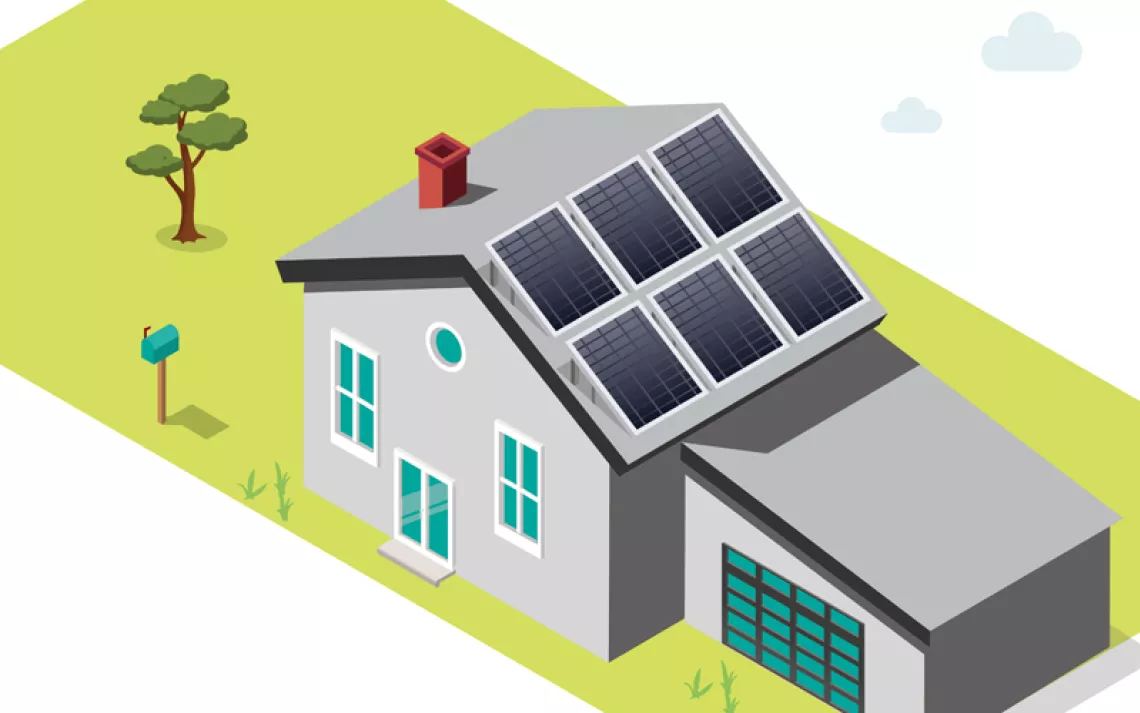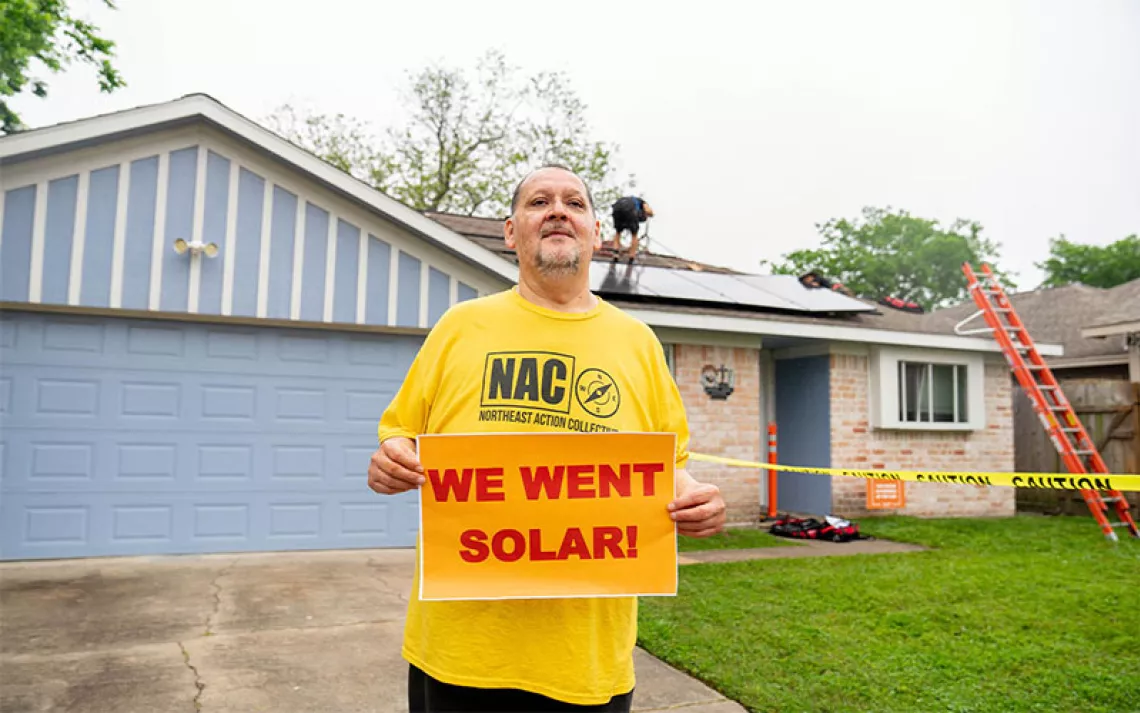Eclipse of the U.S. Solar Industry?
The Trump administration slaps a 30 percent duty on imported solar panels

Photo courtesy of Mark Kramer
Today the Trump administration slapped tariffs as high as 30 percent on imported solar panels, a move that could upend the U.S. solar installation industry, which depends overwhelmingly on Asian-made panels. Perhaps Trump’s new plan for bringing back coal is to destroy the U.S. renewable energy sector.
Ironically, Trump’s not-unexpected move is ostensibly in support of the U.S. solar industry. Last year, bankrupt solar manufacturer Suniva asked for import duties on Chinese solar cells, saying that it had been damaged by cheap Asian panels. The U.S. International Trade Commission agreed in September, giving Trump until this month to decide whether or not to impose tariffs. The decision dropped today: 30 percent tariffs, but only after the first 2.5 gigawatts of imports (a considerable amount) and declining over four years.

The tariff is not as high as the 35 percent recommended by the ITC nor as high as many in the industry had feared; UtilityDIVE cites GTM Research’s estimate that it will cost roughly $0.10 to $0.15 a watt, and reduce utility-scale solar installations by 9 percent. In the last dozen years, the nation’s solar cell manufacturing industry has faded greatly, with most of the growth centered on installation—including on the rooftops of more than a million households—of cheap Asian panels.
The Solar Energy Industries Association decried the move, saying that it would result in the loss of 23,000 American jobs this year, including many in manufacturing. “It boggles my mind that this president—any president, really—would voluntarily choose to damage one of the fastest-growing segments of our economy,” the association quoted Tony Clifford, chief development officer at Standard Solar.
“While tariffs in this case will not create adequate cell or module manufacturing to meet U.S. demand, or keep foreign-owned Suniva and SolarWorld afloat, they will create a crisis in a part of our economy that has been thriving, which will ultimately cost tens of thousands of hard-working, blue-collar Americans their jobs,” said SEIA president Abigail Ross Hopper.
This article has been updated.
 The Magazine of The Sierra Club
The Magazine of The Sierra Club



